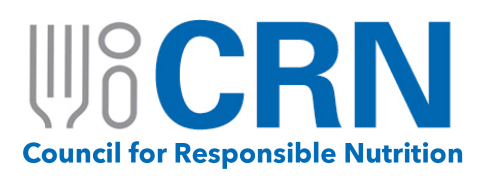CRN Responds to Cholesterol Study Wrongly Comparing Supplements to Prescription Drug Rosuvastatin
CRN Responds to Cholesterol Study Wrongly Comparing Supplements to Prescription Drug Rosuvastatin
Poor Supplement Selection; Inadequate Length of Study; Potential Researcher Bias and Unrealistic Expectations Plague Results
WASHINGTON--(BUSINESS WIRE)--The Council for Responsible Nutrition (CRN), the leading trade association for the dietary supplement and functional food industry, responds to results of the “Supplements, Placebo, or Rosuvastatin (SPORT)” Study presented at the American Heart Association Scientific Sessions Nov. 6. SPORT, funded by AstraZeneca, the company that markets Rosuvastatin, compared the effect on low-density lipoprotein-cholesterol (LDL-C) from the funder’s low-dose statin with placebo and six dietary supplements: fish oil, cinnamon, garlic, turmeric, plant sterols, and red yeast rice over a four-week period.
CRN Senior Vice President, Scientific and Regulatory Affairs Andrea Wong, Ph.D., put the results into context, explaining:
“SPORT completely misses the point of supplementation by comparing the effects of a prescription drug to dietary supplements in a short-term study. Dietary supplements are not intended to be quick fixes and their effects may not be revealed during the course of a study that only spans four weeks, particularly on a multifactorial condition like high cholesterol. This is a major—and author-acknowledged—limitation of the study. The most enthusiastic supporters of supplements wouldn’t expect disease markers to improve in 28 days from supplement use, even in conjunction with dietary changes and exercise.
“Even more perplexing is the researchers’ selection of the supplements in the study. It’s as if the study was set up for misdirection and failure of the supplements. While all the supplements included in the study are well-recognized for their benefits related to heart health, only three are marketed for their cholesterol lowering benefits. The other ingredients are better known for their effects on other health outcomes (like improvement of triglycerides or insulin modulation), so it is unclear why they were chosen to be assessed for their effects on LDL cholesterol.
“As for broader cardiovascular benefits, the U.S. Food and Drug Administration (FDA) has expressly authorized a health claim for plant sterols and reduced risk of coronary heart disease and permits the use of claims for omega-3 fatty acids and reduced risk of coronary heart disease and hypertension. But these outcomes typically take more than 28 days to achieve.
“Both prescription drugs and dietary supplements have beneficial roles to play in achieving better health. Supplements are not intended to replace medications or other medical treatments. Instead, they support and maintain health, and in conjunction with a healthy diet, physical activity, and regular check-ups with a healthcare professional, they can help reduce disease risk.”
The CRN Foundation’s “Supplements to Savings” report includes data on several dietary supplement ingredients—including omega-3 fatty acids and their impact on coronary artery disease. Backed by scientific literature assessing each supplement’s efficacy, the report details projected implications for U.S. healthcare stakeholders in the number of events potentially avoidable with the use of each supplement and economic benefits that could accrue from use of each supplement by an at-risk individual.
The Council for Responsible Nutrition (CRN), founded in 1973, is a Washington, D.C.-based trade association representing more than 200 dietary supplement and functional food manufacturers, ingredient suppliers, and companies providing services to those manufacturers and suppliers. In addition to complying with a host of federal and state regulations governing dietary supplements and food in the areas of manufacturing, marketing, quality control and safety, our manufacturer and supplier members also agree to adhere to additional voluntary guidelines as well as to CRN’s Code of Ethics. For more information, visit www.crnusa.org. Follow us on Twitter @CRN_Supplements and LinkedIn.
Contacts
Craig M. Muckle
202-204-7665
cmuckle@crnusa.org
